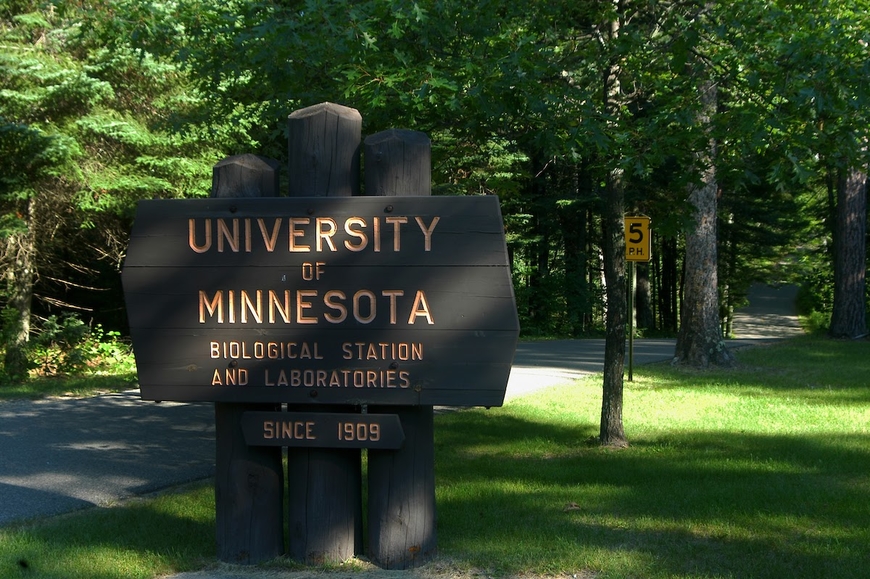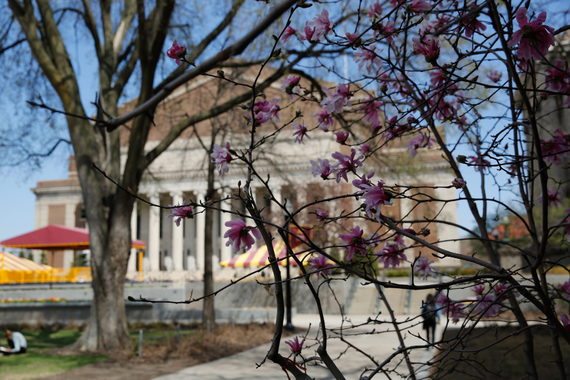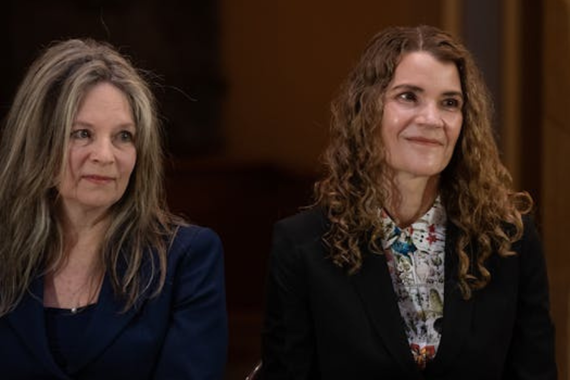Writing in Community
Minnesota’s oldest state park proved to be an especially rejuvenating space for eight faculty members this summer. In June, the Center for Race, Indigeneity, Disability, Gender, and Sexuality (RIDGS) Studies hosted a Faculty Summer Writing Retreat at the Itasca Biological Station and Laboratories, nestled within Itasca State Park.
The retreat, made possible by the Ruby Pernell Fund for Faculty Retention, was designed for a particular purpose—to provide participants with the opportunity to write and to rest while building camaraderie with their fellow faculty peers. Each day was filled with structured writing periods and prompts, shared meals, and plenty of downtime to enjoy the environmental sanctuary.
“For many junior faculty participants, the retreat is meant to help them progress toward publication and tenure,” shares Keith Mayes, RIDGS director and African American & African Studies professor. “The impact of that transition from one rank to another can be something that is indelible to their career improvement and advancement.”
RIDGS has hosted similar retreats for graduate students in the past, but this year’s community-building experience was the first of its kind for faculty participants. Looking ahead, Mayes hopes this retention effort will offer faculty, particularly faculty of color, the support they need at a critical stage, and ultimately contribute to an overall culture of support within CLA. “We recognized that an experience like this could contribute to professors’ advancement and well-being.”
Dr. Ruby Pernell was hired as an instructor at the University of Minnesota in 1948, and is believed to be one of the first Black faculty members ever hired by a state flagship university. Pernell taught in the School of Social Work, which was then part of the College of Science, Literature, and the Arts (now the College of Liberal Arts). A leading scholar in the fields of social group work and international social welfare, Pernell left Minnesota in 1968 for Case Western Reserve University, where she was later appointed acting Dean and continued to serve as an emerita professor until her death in 2001.
Five participants reflect on their experiences, projects, and memorable takeaways from the first annual Faculty Summer Writing Retreat.
Jennifer L. Pierce, Professor, American Studies
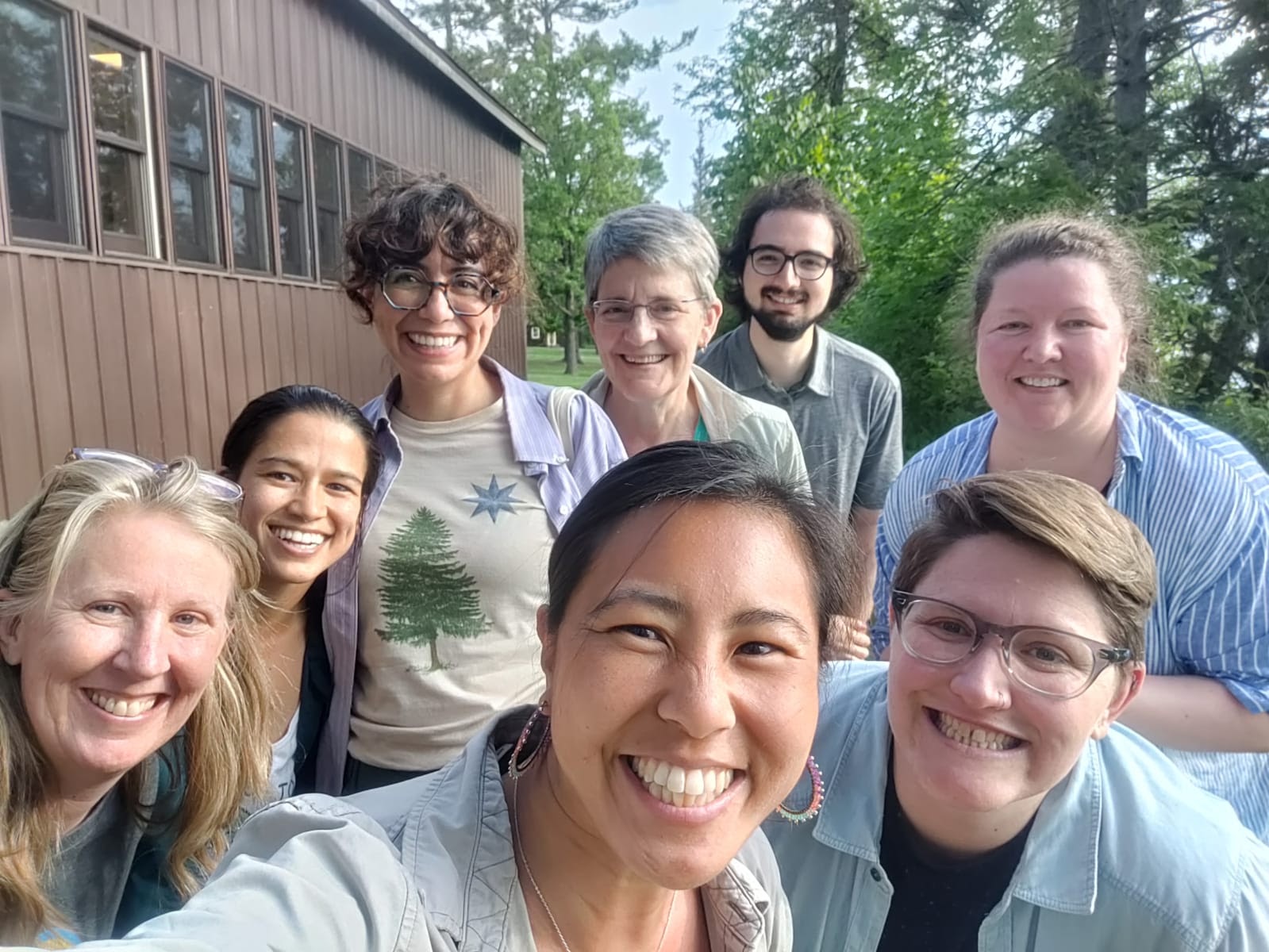
What were some memorable takeaways from your week on Lake Itasca?
Listening to the haunting sounds of loons on the lake in the evening. Watching two women from the group kayak from our cabin to the headwaters of the Mississippi. Listening to the rain drum the roof of our cabin after a day of serious writing.
Was this retreat an especially effective way to work on writing and build community, and if yes, what made it so?
The combination of scheduled times to sit down and write together along with scheduled times to hike, kayak, and/or play board games meant we had time to reflect together on what we were doing and why we cared so much about our research. For most academics, writing is a solo venture. The retreat meant we shared the writing process. Everyone talked about their writing process, their research projects and the ups and downs of doing research. We built our retreat community through shared discussions about our research and writing.
For me, the hardest part of writing is beginning something new. Once I have something written, it's easier to keep going. So, I needed a push to get started on the third chapter for my book project tentatively titled, Working in the Ivory Basement: Clerical Workers and Social Justice Unionism at UC Berkeley, 1966-1983. Working with others who were also looking for a little inspiration and some deadlines sounded like the perfect way to get started. I was also intrigued by the location at Lake Itasca. I had never been there and heard that it was beautiful.
Jennifer L. Pierce
Laura Garbes, Assistant Professor, Sociology
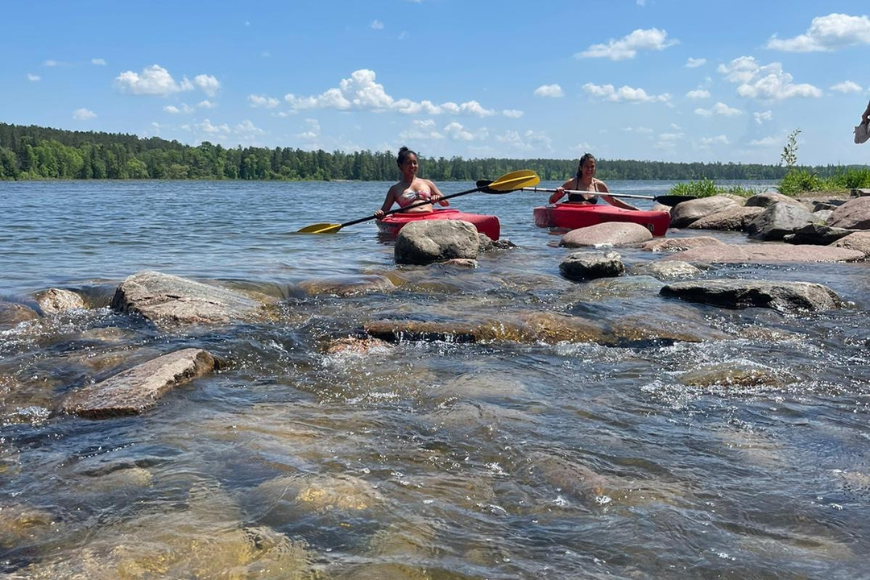
Tell us about your writing project. What problems does your work seek to address?
I attended the retreat to finish the conclusion of my book manuscript on NPR's whiteness. My work aims to better understand how white racialized organizations shape the experiences of people of color that work there.
What were some memorable takeaways from your week on Lake Itasca?
Kayaking to the headwaters in between writing sessions was an incredible way to break up the day! It also inspired me to want to write. Future participants, bring a notebook! It was freeing to take notes off of my laptop for much of the retreat.
Was this retreat an especially effective way to work on writing and build community, and if yes, what made it so?
This retreat helped me to finish my conclusion. This was only possible because of the positive and supportive co-participants and the kind and well-prepared facilitator Coby Oertel. We discussed our work with one another, we were given prompts to start and end the day, and we were given a structure to follow that was flexible enough to fit multiple types of writers!
As a new faculty member, I was interested in the RIDGS Writing Retreat primarily as a way to get to know professors and postdocs across departments interested in similar research topics.
Laura Garbes
Jessica Cooley, ACLS Postdoctoral Associate at the Liberal Arts Engagement Hub
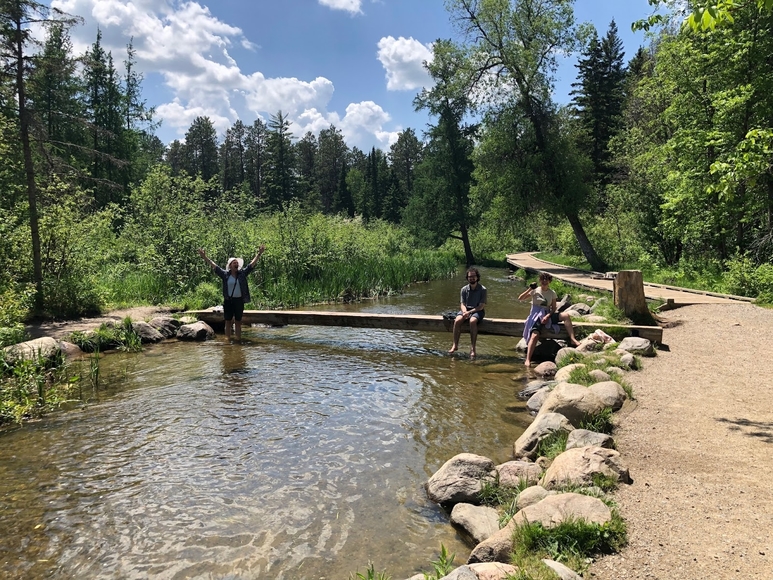
Tell us about your writing project. What problems does your work seek to address?
I spent my time working to transform my dissertation into my first monograph titled "Crip Materiality." Crip Materiality forwards a new methodology to address how ableism affects the understanding and valuation of the very fibers of art materials within curatorial and conservation discourses.
What were some memorable takeaways from your week on Lake Itasca?
The joy of writing in community. The organizer, Coby Oertel, also did an excellent job creating a fun and supportive atmosphere.
Having multiple days dedicated to writing at a beautiful location with a supportive group is a dream - how could you not participate :)
Jessica Cooley
Meixi, Assistant Professor, Comparative and International Development Education/OLPD, American Indian Studies Affiliate

Tell us about your writing project. What problems does your work seek to address?
My writing project is about lift-offs and social dreaming in Indigenous education contexts. How might teachers come together to create and enact educational change-making - especially when it's hard? How can teachers social dream together towards Indigenous futures in the context of Thailand? Often we do not study how teachers are ethical and political actors and more importantly relational qualities among teachers building relationalities among teachers is a force for movement.
What were some memorable takeaways from your week on Lake Itasca?
I loved the mix of in-depth conversations and laughter shared among the faculty. We shared stories, kayaking adventures, meal-time advice and many other quality interactions. My favorite time was paddling to the headwaters and meeting other faculty there who were cheering us on as we paddled. As a junior faculty, this time was so invaluable to me to listen and learn from faculty across disciplines and seniority. It was a beautiful time of gathering, generativity, and sharing. I can imagine more collaborations to come!
Was this retreat an especially effective way to work on writing and build community, and if yes, what made it so?
1000%. The structured goal-setting, the prepared and structured meal-times, the availability of longer recreation times. I wrote SO much on a manuscript that I've been stuck with forever and am grateful for this chance to dedicate this time to myself and to others in the RIDGS faculty.
I was inspired by the possibility of connecting with other faculty thinking and doing work around Race, Indigeneity, Gender - critical issues of our time. The idea of creating a writing community and having RIDGS faculty push and sharpen each others' ideas was also exciting to me.
Meixi
Erin L. Durban, Associate Professor, Anthropology & Critical Disability Studies, Affiliated with Gender, Women, & Sexuality Studies and American Studies
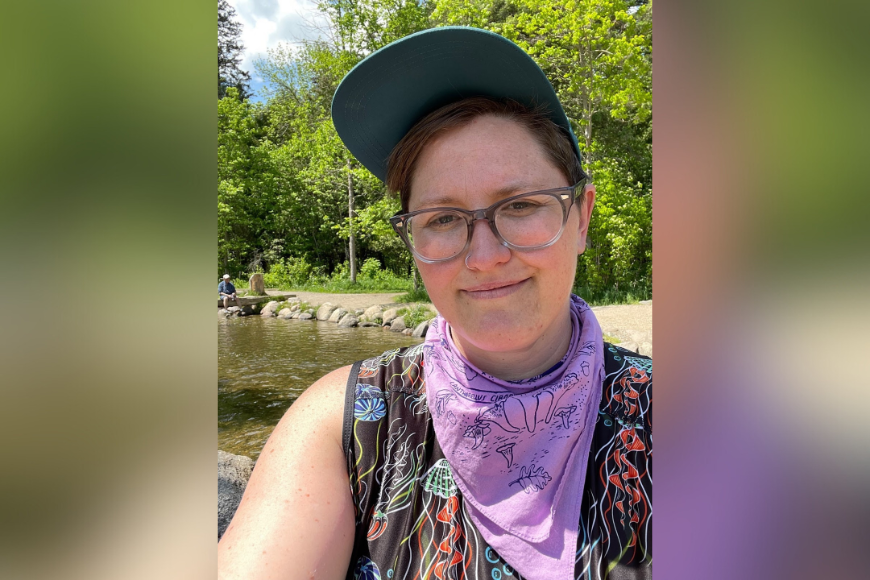
Tell us about your writing project. What problems does your work seek to address?
Miranda Joseph and I are writing a book together about the University Grove faculty neighborhood of the University of Minnesota as a way to open into larger social and political issues. We take an intersectional feminist approach to thinking about universities and racialized landownership and the complex dynamics of faculty as workers and tenants. My initial writing about the project has been about its innovative ethnographic and historical methods drawn from critical disability studies that center collective access for the 30+ student and faculty researchers who have participated in the project.
What were some memorable takeaways from your week on Lake Itasca?
I had the unusual experience of being able to write a lot (15 pages!) during the RIDGS Writing Retreat. But that was only the beginning of the benefits of the retreat. Sleeping in cabins together, playing board games, sharing meals, and enjoying the outdoors in Minnesota created deep connections between the participants. It created the intimacy to be able to share our struggles in the university beyond writing, and to seek mentorship from each other.
The RIDGS Writing Retreat was an incredible opportunity to connect with diverse postdocs and faculty across UMN, in addition to generating momentum on a summer writing project. As a disabled and chronically ill scholar, I know most of these kinds of events are not set up for my participation and might only consider individual accommodations in a superficial way. But RIDGS has demonstrated its commitment to disability accessibility in a way that made me feel confident that I could participate in the program.
Erin L. Durban
Jenn Marshall, Professor and Chair of the Department of Art History
What inspired you to participate in the RIDGS Writing Retreat?
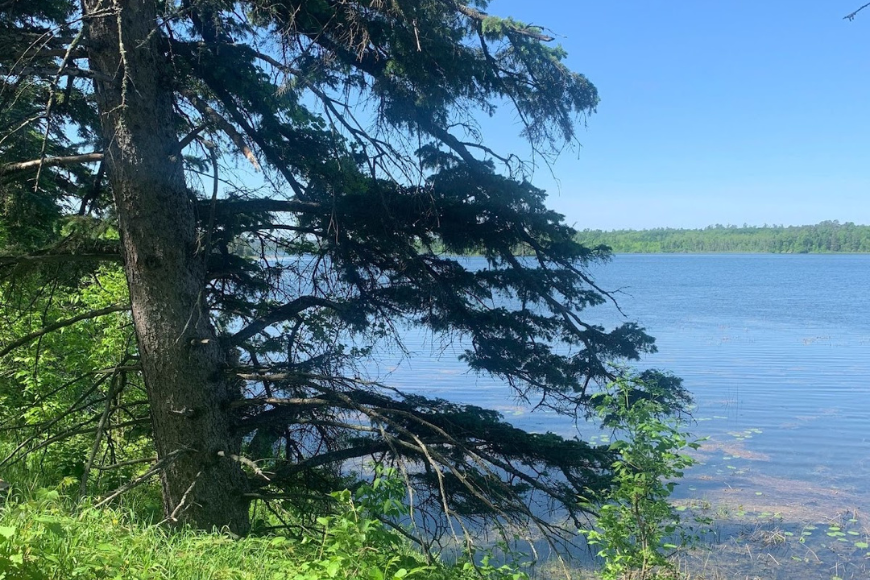
I needed a reset! We're all feeling burnout in our work at exceptionally high levels, so I jumped at the chance to connect to all the larger and deeper reasons for my work as a scholar in the humanities. For me, it was especially vital to reconnect with collegial conversation, hanging out with both old and new friends to exchange ideas, swap references, and ask hard questions about the social mission of our work.
Support Our RIDGS Scholars
Support CLA faculty who are advancing research and teaching in the areas of race, indigeneity, gender, and sexuality with a gift to the Ruby Pernell Fund for Faculty Retention.
